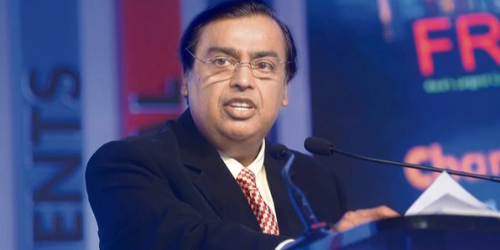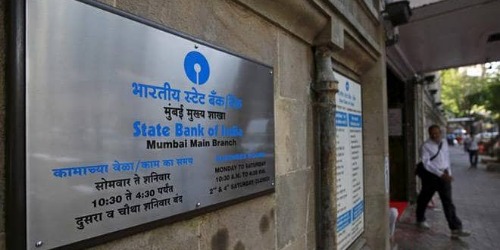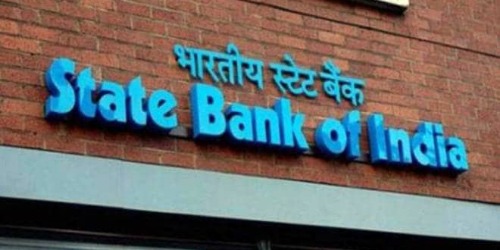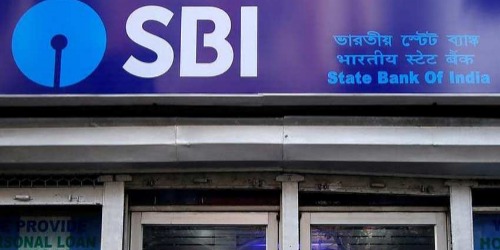Mukesh Ambani's RIL to form task force to invest in J&K, Ladakh after PM Modi's request

Reliance Industries Chairman Mukesh Ambani on Monday promised to invest in Jammu and Kashmir. Mukesh Ambani's Reliance Industries is one of the several businesses, including Amul and Lemon Tree, that have promised to make investments in the state after its bifurcation and revocation of special status by the Centre. Mukesh Ambani's statement comes days after Prime Minister Narendra Modi called on businesses to invest in J&K and Ladakh, especially in key sectors like tourism, agriculture, IT, healthcare among others.
In Reliance Industries' Annual General Meeting on Monday, Mukesh Ambani said RIL stood committed to supporting the people of Jammu & Kashmir and Ladakh in all their developmental needs. "You will see several announcements for the Jammu and Kashmir and Ladakh in the coming days," assured Mukesh Ambani. He added Reliance Industries would create a special task force for developmental activities in J&K and Ladakh.
Mukesh Ambani said RIL had built a unique portfolio of world-class and extremely valuable assets in the world's fastest-growing economy. "It is my passion and conviction that New India will lead and not follow the advanced nations of the world in adopting, even creating disruptive technologies that will decide the winners and losers of the Fourth Industrial Revolution," he added.
With the contentious Article 370 gone, the Centre is encouraging industrialists by openings the economy of J&K, which has huge potential in sectors including hospitality, horticulture and tourism. Recently, dairy major Amul India had expressed interest towards investing in the region. Helmet maker Steelbird also offered to set up a plant in Jammu and Kashmir. Hospitality player Lemon Tree also proposed two new properties with 35-40 beds each in Gulmarg and Sonmarg areas. Lemon Tree already operates three hotels with a capacity of 176 beds in the region. The biggest one with 70 rooms was opened in Katra in 2017. The company started two more hotels in Srinagar and Jammu in 2018. Presently, companies including Lupin, Sun Pharamceuticals, Cadila Pharmaceuticals, Coca Cola, Radisson, Dabur and Berger Paints have investments in Jammu and Kashmir.
- 0
- Leave a comment
SBI home loan interest rates cut by 15 bps across all tenors after RBI policy announcement

State Bank of India (SBI), the country's largest lender, on Wednesday slashed home loan rates after the Reserve Bank of India (RBI) cut its key repo rate for the fourth time this year. Repo rate is the interest rate at which the RBI lends money to banks.
SBI said it has cut its MCLR (marginal cost based lending rates) by 15 basis points (bps) across all tenors with effect from August 10, 2019, a move which is likely to provide some respite to home loan borrower. When the cost of borrowing goes down for banks, they are able to lower their respective MCLR, which directly impacts home loans.
The revised one-year MCLR stands at 8.25% per annum down from 8.40% earlier, SBI said in a statement. The two-years MCLR comes down to 8.35% per annum, from 8.50% annum, while rates for three-years has been cut to 8.45%.
The announcement came within a couple of hours after the RBI slashed key policy rates by 35 basis points to 5.45 per cent from 5.75 per cent on Wednesday with immediate effect. With the fourth cut in a row, the repo rate stands lowest level in the past nine years. After the rate cut, EMIs on home loans and other loans are likely to come down significantly.
Earlier in April, SBI had cut the lending rates by 5 basis points across all tenors after the RBI lowered the repo rate by 25 bps from 6.25 per cent to 6 per cent.
From July 1 this year, state-run lender introduced a repo rate-linked home loan product. This means interest rate on this new home loan product gets revised automatically whenever there is a change in repo rate.
Among others, private sector lender HDFC Bank has reportedly announced a 0.10 per cent cut in lending rates across all tenors, effective Wednesday.
SBI becomes 1st Indian bank to link up with China's National Advance Payment System

The State Bank of India's Shanghai branch is now connected to China's National Advance Payment System (CNAPS), becoming the first Indian Bank to operationalise it, a senior bank official said on Friday.
The CNAPS, launched in 2008 by People's Bank of China (PBOC) provides real-time settlement services for all payments cleared in mainland China, as well as in all clearing banks in offshore yuan centers, such as Hong Kong.
The CNAPS system is complemented by its international counterpart, the CIPS (China International Payments System or Cross-Border Inter-Bank Payment System), launched in 2015 with the aim of boosting international use of the Chinese currency, yuan.
The CIPS already has participants from multiple countries across the globe.
The SBI is the only Indian bank to have obtained the license to do business in local currency and also inducted to the CNAPS by the PBOC as on date, K Swaminathan, Chief Executive Officer of SBI, Shanghai said on Friday.
The SBI has obtained the PBOC approval in December 2016 for implementation of the CNAPS and after successful installation of various hardware and software, testing it is now connected to the PBOC live system on July 8, 2019, he said.
After being a member of the CNAPS, SBI Shanghai can also offer real time transfer of local funds within China by routing them through the PBOC.
It eliminates the need of tie up and maintenance of accounts with multiple Banks for fund transfer, he said.
The CNAPS will also be used for cross border RMB payments which are hitherto being made through local correspondent banks.
This will also give SBI opportunity to do business of Bankers acceptance drafts (BAD), he said.The SBI has started its representative office in 1997 and began its commercial operation in 2006.
Currently, it is the only Indian bank with license to deal in RMB, the local currency, as well as foreign currency.
With total customer credit of nearly $500 million and staff strength of 40 people that includes 32 Chinese nationals, the bank has always been at the forefront of facilitating India-China trade and investments apart from serving the Indians working in China in the field of IT and others, Swaminathan said.
The bank extends bank guarantee facility to Chinese corporates undertaking various construction, tech, and investment projects, he said. The bank has also been extending term as well working capital credit facilities to Indian corporates and companies promoted by Indians in China to facilitate Indian investment in China, he said.
The bank has also been an active participant in local syndication arranged by major foreign as well as Chinese banks.
Other than the activities on asset side, the bank has been facilitating Indians working in China in their remittance as well as other banking needs, he said.
SBI cuts interest rates on FDs with effect from August 1

SBI FD rates: The State Bank of India, the country's largest lender, has just slashed interest rates on its fixed deposits (FDs) of less than Rs 2 crore, or retail deposits, as well as the larger deposits across nearly all tenures offered. While deposits of 7 days to 45 days will now earn 75 basis points (bps) less, most of the tenures have seen rates dip by 10-20 bps. The smallest rate cut of 5 bps will apply on the 2-year to less than 3-year tenure. The new interest rates on SBI FDs will come into effect from August 1.
On FDs maturing in 46-179 days, the interest rate will come down to 5.75 per cent from the 6.25 per cent applicable since early May. For deposits in the 180-210 days bucket the bank will offer 10 bps less at 6.25 per cent while the 211-364 days bucket will earn 15 bps lower, again at 6.25 per cent and the 1 year to under 2 years tenure will fetch 6.80 per cent from 7 per cent currently. The 3-5 year bucket will earn 10 bps lower at 6.60 per cent.
Bulk deposits, that is amounts of over Rs 2 crore, used to earn a marginally higher interest rate than retail deposits for the longer maturity periods, but now they are at par. In fact, bulk deposits of 1 year to less than 2 years tenure, the only bucket to remain unchanged, will now earn 10 bps less than smaller deposits of the same tenure. The last time the bulk deposit rates were tweaked was in February.
This development comes in the wake of a liquidity surplus in the system and the softening interest rates. In the wake of the RBI's monetary policy committee (MPC) voting to reduce the repo rate by 25 basis points (bps) to 5.75 per cent in June, for the third time in a row, some of the country's leading private sector lenders including ICICI Bank, Kotak Mahindra Bank and Axis Bank, had also cut their interest rates on deposits by varying percentages.
According to Care Ratings, the banking system has been in liquidity surplus since end-May - barring June 20 - after being in deficit for seven months. In the week of June 15-19 , "the (net) liquidity surplus was estimated to be over Rs 1.3 lakh crore on each of the 5 days, despite outflows towards GST payments, fortnightly reporting of scheduled commercial banks with RBI and government market borrowings", read the report.
Sitharaman promises to reduce corporate tax to 25% for all companies

In the course of a four-hour debate on the Finance Bill 2019 and the Appropriation Bill in Rajya Sabha on Tuesday, Finance Minister Nirmala Sitharaman reiterated the Modi government's promise to lower the corporate tax to 25 per cent for all of India Inc. "We have brought it [corporate tax] down in order that now 99.3 per cent industries are all covered by the 25 per cent rate and, therefore, hardly any is left behind," she informed the Upper House, adding, "We shall cover them sooner".
On July 5, while presenting her maiden Union Budget, Sitharaman announced that companies with an annual turnover up to Rs 400 crore will now be taxed at the lower rate of 25 per cent as a step towards phased reduction in tax rates. Previously, the lower rate was only applicable to companies having annual turnover up to Rs 250 crore while the rest of India Inc incurred a 30 per cent tax rate.
"Reduction in corporate tax rate is done with an intention," Sitharaman said in the Rajya Sabha, explaining the rationale behind the move. "A trajectory was given to us as to how we will bring the corporate tax from the high rate that it was, from 30 per cent down to 25 per cent. It was a commitment given in the first ever Budget in 2014. I had to honour it."
Sitharaman also touched upon the other changes that have been introduced under direct taxes, such as the incentive on buying electric vehicles and exempting start-ups from angel tax - a tax on the premium (over the fair value) received on its shares when sold to investors. "All these underline the fact that unless we continuously make taxation come down and make sure that the larger principle of redistribution is attended to, equity is not going to be addressed," she added.
Indirect taxation
According to her, on the indirect taxation front too, changes had been made from the point of view of getting a level-playing field. "Customs Act has been touched because we want to have greater compliance. Some repetitive errors, which are being done, should not be done. People who are repeatedly gaming the system, if we have enough evidence, we want to take them to a Magistrate Court and be able to search them physically," she said. Such a physical search of violators was not possible with amending the Act. "But, of course, it will be done in the presence of a Magistrate and, therefore, no worries about empowering the Customs without a responsibility," she clarified.
2% TDS on cash withdrawals exceeding Rs 1 crore
Responding to Rajya Sabha members alleging that the Budget punishes cash withdrawals, Sitharaman defended the move on the grounds of greater transparency and accountability. "We have had several instances of people dealing and transacting huge sums of money in cash from their accounts. When we trace it to their names, they have not even filed their Income Tax Return," she explained.
Significantly, she made it clear that this TDS will not be over and above the tax liability of the individual or the entity and can be set off when income tax returns are filed. The total TDS paid on cash withdrawal beyond Rs 1 crore will not be constituted as income in hands of the taxpayer. This provision would come into effect from September 1, 2019.
Direct Tax Code
Sitharaman also informed the House that the Task Force has completed its job on the Direct Taxation Code and is likely to submit the report on July 31 "Ultimately, we are interested, whether it is direct or indirect taxation, we are working towards simplifying the burden on compliance, which every assessee undergoes," she said. The Finance Bill and the Appropriation Bill were returned by the Rajya Sabha on Tuesday after being endorsed by voice vote.
Amendments to various Acts
The FM claimed that the most important change was the amendment to the Prevention of Money Laundering Act (PMLA). "Of the eight different changes that we are bringing into the PMLA, six relate to explanatory notes because we find that in the courts, many of those offenders under the PMLA - if there are two cases happening - try to club both the cases although they may be materially different and seek a bail," she explained. In the bargain, the law does not get invoked in its true letter and spirit and the government is now taking steps to make this Act more effective. So, such changes in the definition and explanatory matters have been done in the PMLA.
The RBI Act has also been amended. "We needed to change this because we are giving powers to the RBI now in order that they will be able to regulate and also give resolution in the matters of NBFC-related areas," she explained, adding, "The SEBI Act is also being changed because we needed to make sure that some of the surplus fund and alteration; destruction and mutilation-related matters are all taken up."


